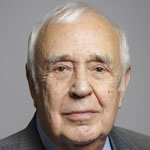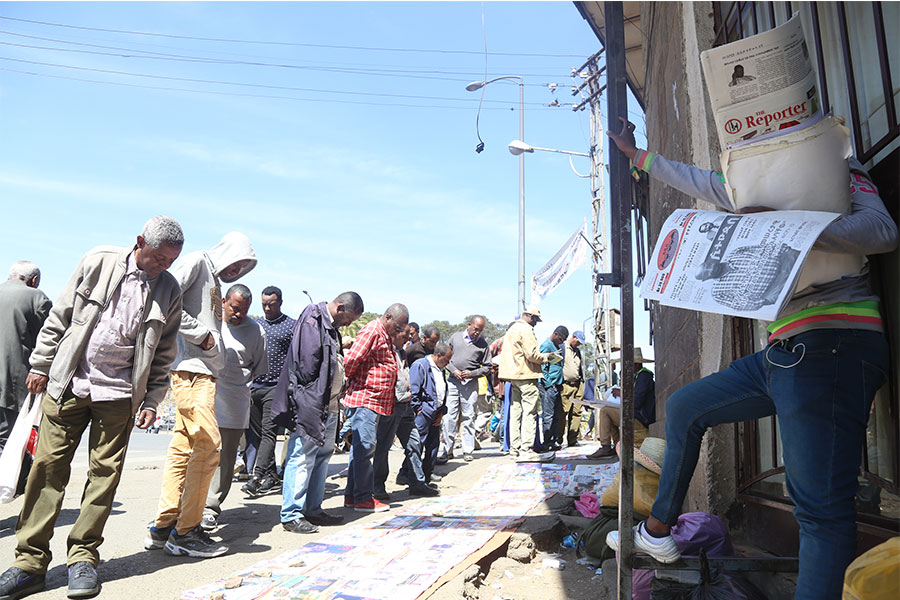
Commentaries | Jul 06,2019
Language shapes our thinking and perception of the world and, consequently, what happens in it. That is why I worry less about the troubling state of the world nowadays than about the words we use to describe it.
For example, we use the word "war" to describe a phenomenon that exists independently of our term for it. But if we consistently describe and perceive the world as hostile, it tends to become so. By the same token, declaring that we are on the verge of World War III, as many do nowadays, could become a self-fulfilling prophecy.
I first started contemplating the impact of evolving language on thought in the 1970s, after reading George Orwell's essay "Politics and the English Language." At the time, I was struck by the increasing vagueness of our political language. Writing in 1946, Orwell noted that the harrowing events of his time – the mass atrocities of Nazism, Soviet communism, and the atomic bombings of Hiroshima and Nagasaki – necessitated the use of doublespeak as a numbing agent.
"Political speech and writing," he wrote, "are largely the defence of the indefensible."
Democratic governments begin to regulate language to prevent distress from escalating into political disorder.
As an example, Orwell cited the euphemistic terms "transfer of populations" and "rectification of frontiers," used to describe the forced relocation of millions of people.
Orwell viewed such euphemistic absurdities as a disease of democracy.
"When one watches some tired hack on the platform mechanically repeating the familiar phrases," he wrote, "one often has the curious feeling that one is not watching a live human being but some kind of dummy."
By the 1970s, many writers shared Orwell's concerns about the deterioration of public language. Although the world had undoubtedly improved since the 1940s, the proliferation of euphemisms had intensified. Paul Johnson characterised this trend as the "effort of the well-meaning to avoid hurting others' feelings."
Why, I wondered, have we become so sensitive?
The vagueness of public language has markedly increased over the past few decades. Consider, for example, the Royal Society of Arts' aim to foster a "resilient, rebalanced, and regenerative" world, or Ian Hogarth's commitment, as head of the UK government's AI Foundation Model Taskforce, to forging a "nuanced" policy that "manages downside risks while protecting the upside of this technology." Such mission statements raise the question.
Are public-communication professionals handed playbooks filled with the right adjectives, acronyms, and stock phrases to construct sentences "tacked together like sections of a prefabricated henhouse," as Orwell described them, or do they simply imitate what they perceive as industry best practices?
In his dystopian novel "1984", Orwell explores how manipulating language can control thought, thereby rendering "thoughtcrimes" impossible. To be sure, Big Brother's telescreens, successors to Jeremy Bentham's panopticon, represent a technologically advanced form of surveillance foreshadowing today's ubiquitous CCTV cameras. But Orwell's greatest contribution to dystopian literature was not his depiction of the modern surveillance state, but rather "Newspeak". If everyone used only the words sanctioned by Big Brother, laws and surveillance would become redundant.
Winston Smith, the novel's protagonist, is tasked with rewriting history. His duties include altering yesterday's news stories to conform with the latest policy shifts, removing outdated inscriptions, statues, memorial stones, and street signs, and burning old books. Meanwhile, his colleague Syme is responsible for "destroying [hundreds of] words" every day or translating them into Newspeak, the only language "whose vocabulary gets smaller every year."
As Smith explains, "In the end, we shall make thoughtcrime literally impossible, because there will be no words in which to express it."
Orwell regarded the purification of thought through language as a hallmark of totalitarianism. But as the "cancelling" or shaming of individuals for using "inappropriate" language shows, even democracies are not immune to such practices. In his 1978 novel "1985", the British author Anthony Burgess observed, "If I, a writer, use words that betray even grammatical discrimination, I am in danger of legal punishment."
While much of today's language policing represents a deliberate attempt at social engineering, this is only part of the story. What we are facing is not state-generated Newspeak, but rather a politically correct vocabulary that has emerged from the mechanisms of liberal democracy itself. In "Democracy in America", Alexis de Tocqueville warned against the unchecked power of the majority in a society free from traditional constraints and dedicated to equality. In traditional societies, he noted, "few new words are coined, because few new things are made."
By contrast, democratic countries embrace change for its own sake, a characteristic evident not only in their politics but also in their language. Tocqueville observed that such societies tend to assign grandiose titles to modest occupations, apply technical jargon to everyday items, alter the meanings of words to make them ambiguous, and replace idiomatic expressions with abstract ones.
He states: "I had rather that the language should be made hideous by words imported from the Chinese, the Tartars, or the Hurons, than that the meaning of words in our language should become indeterminate."
Unlike the largely homogeneous American society Tocqueville described, the tyranny of the majority does not drive today's linguistic excesses. Instead, they are initiated by minorities, or lobbies claiming to speak for them, seeking "equal recognition" for their inherent or chosen identities. This shift imposes a moral obligation on outsiders to use language that avoids causing "mental distress" to members of these minority groups.
Democratic governments begin to regulate language to prevent distress from escalating into political disorder. Consequently, the category of "hate crime" has been introduced into the statute books. But the biggest problem with today's democratic rhetoric is its tendency to frame international relations in moral terms, dividing the world into "good" and "bad" countries. While this dichotomy might boost morale, it impedes efforts to achieve global peace.
As the British historian A.J.P. Taylor famously observed, "Bismarck fought 'necessary wars' and killed thousands; the idealists of the twentieth century fight 'just' wars and kill millions."
PUBLISHED ON
Jul 26,2025 [ VOL
26 , NO
1317]


Commentaries | Jul 06,2019

Life Matters | Oct 28,2023

Viewpoints | Apr 15,2023

Editorial | Oct 28,2023

Life Matters | Jul 09,2022

Sunday with Eden | Nov 27,2021

Viewpoints | Feb 03,2024

News Analysis | Jan 05,2020

Radar | Nov 16,2019

Agenda | Dec 19,2018

Dec 22 , 2024 . By TIZITA SHEWAFERAW
Charged with transforming colossal state-owned enterprises into modern and competitiv...

Aug 18 , 2024 . By AKSAH ITALO
Although predictable Yonas Zerihun's job in the ride-hailing service is not immune to...

Jul 28 , 2024 . By TIZITA SHEWAFERAW
Unhabitual, perhaps too many, Samuel Gebreyohannes, 38, used to occasionally enjoy a couple of beers at breakfast. However, he recently swit...

Jul 13 , 2024 . By AKSAH ITALO
Investors who rely on tractors, trucks, and field vehicles for commuting, transporting commodities, and f...

Oct 25 , 2025
The regulatory machinery is on overdrive. In only two years, no fewer than 35 new pro...

Oct 18 , 2025
The political establishment, notably the ruling party and its top brass, has become p...

Oct 11 , 2025
Ladislas Farago, a roving Associated Press (AP) correspondent, arrived in Ethiopia in...

Oct 4 , 2025
Eyob Tekalegn (PhD) had been in the Governor's chair for only weeks when, on Septembe...